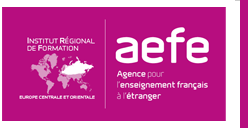In 2023, 567 schools, collèges and lycées established outside France, in 138 countries, will offer teaching in line with the requirements of the French national education system. These approved establishments, which make up the French Education Abroad (EFE) network, promote humanist values - tolerance, equality between girls and boys, equal opportunities, intellectual curiosity, promotion of critical thinking, etc. - and enable French children living outside France to follow a schooling system similar to that followed by children living in France.

French schools abroad follow the same curricula and offer the same diplomas (brevet, baccalauréat). This means that children whose parents live in different countries can have a coherent education, from nursery school to the final year of secondary school.
As part of a dynamic, attractive and open international network, French schools abroad offer a particularly enriching education. To take account of the local context (language, culture), specific ways of implementing educational programmes and objectives are possibleIn addition, the school calendar and school rhythms can be adjusted, while respecting the annual volume of teaching hours.
French schools abroad contribute to the strengthening cooperation relations between the French and foreign education systems for the benefit of pupils and the community. France's cultural influence.
French educational establishments abroad are the subject of a approval procedure by the Ministry of Education attesting to their conformity with the curricula, teaching objectives and organisational rules applicable in France to state schools. They are subject to renewal every five years.
The Ministry of Education's inspectorate regularly visits schools and assesses their compliance with these criteria at different levels of education.
The official list of approved establishments is published each year in the Journal officiel de la République française.
Three types of establishment can be distinguished:
- Directly managed schools (EGD) AEFE schools: they are set up as decentralised departments of the AEFE. They have a secondary authorising officer, the head of the school, and a secondary accountant. They are part of the public establishment and their budget is aggregated each year with that of the AEFE. The Agency provides grants and pays the permanent staff who work there.

- approved establishments AEFE: these establishments are run by associations or foundations under private law, whether French or foreign, and have signed an administrative, financial and educational agreement with the AEFE. This agreement covers, in particular, the conditions of assignment and remuneration of permanent staff from the French Ministry of Education and the allocation of subsidies. These establishments maintain an ongoing management dialogue with the AEFE.

- partner institutions Schools: These schools are also run by private organisations, either French or foreign, and have signed a partnership agreement with the Agency. The staff of these establishments are not recruited by the AEFE but have full access to the in-service training schemes set up by the AEFE for staff working in the network. A memorandum of understanding has been signed with the Mission laïque française (MLF) concerning the partner establishments monitored by the MLF.

Excellence for all
Educational excellence, serving the success of all, is a stated ambition in all the network's establishments. French educational establishments abroad can boast an excellent success rate at the baccalauréat (99 % on average), higher than that of lycées in France. Most of the network's baccalaureate holders go on to the grandes écoles and the best international universities.
Share
As places for linguistic and cultural exchanges and encounters, and vehicles for a shared experience based on strong values, the schools educate young people from all backgrounds. Pilot language teaching enables national students to be integrated through specific French teaching, the language of the host country to be taught to all students and the use of English and other international languages to be promoted in a multicultural context.
Radiation
By welcoming children from host countries and non-French nationals to its schools (more than 60 % of the total number of pupils), the network contributes to the promotion of the French language and culture. By fostering intercultural communication and understanding, it forges lasting affinities between these pupils and France.
Key figures
-
- Nearly 392,000 pupils, two-thirds of whom are foreign and one-third French
- 580 sites in 139 countries
- Around 18,000 baccalaureate holders each year
- More than 6,500 permanent national education staff and thousands of locally recruited staff



